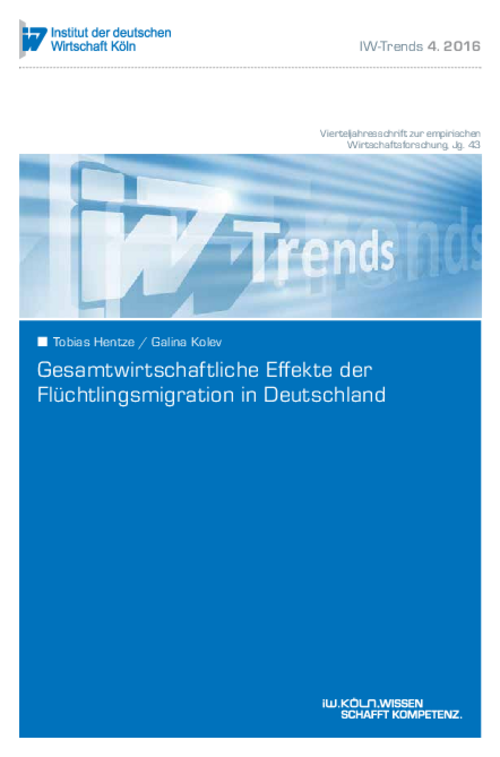In the course of 2015 and 2016 about 1.2 million refugees entered Germany. The authors estimate the short- to medium-term effects of this on the country’s economic development using a macro-econometric model.

The Effect of the Recent Influx of Refugees on Germany’s Economy
IW-Trends

In the course of 2015 and 2016 about 1.2 million refugees entered Germany. The authors estimate the short- to medium-term effects of this on the country’s economic development using a macro-econometric model.
On the one hand the effect on per-capita income and the fiscal balance will be slightly negative, while unemployment will also rise as a result of the refugees’ presence. On the other hand higher public expenditures together with an increasing number of employed refugees will boost economic growth. Between 2016 and 2020 the accumulated increase in the country’s real GDP could amount to as much as € 95 billion. The actual extent of this effect will largely depend on labour market integration and education policy.

Tobias Hentze / Galina Kolev: Gesamtwirtschaftliche Effekte der Flüchtlingsmigration in Deutschland
IW-Trends

More on the topic

Effects of Public Investment on Companies in Germany – Results of the IW Business Survey
Weak public investment activity in Germany has contributed to the low productivity growth of the last decades. Even maintaining the contribution to growth of state-owned capital stock at the already low level of the 1990s would have required an additional ...
IW
Reform of EU-fiscal rules: Lindner's ideas have merit
The German government's proposal to introduce a fixed limit on government spending growth for highly indebted member states in the course of the reform of the Stability and Growth Pact makes sense. Given the macroeconomic environment, such a minimum ...
IW